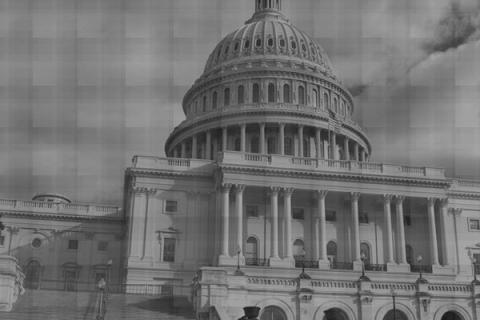California's dependence on a global food economy has placed local consumersat great risk. A state’slong-term economic security is predicated on its ability to feeditself and to continue to do so without exhausting its naturalresources. Such security cannot be realized under our current globalfood system.
Relying on foreign farmers to take up the slack ofnon-diversified industrial farmers, by leveraging with a currency onlife support, is national masochism. With looming global economiccrisis, every state in the Union would do well to evaluate their ownproductive capacities to feed themselves and then look to broadermarkets to balance surpluses and shortages.
The destruction ofthe agrarian class (the once substantial agricultural population inthis country that consisted mostly of small, diverse family ownedfarms) has placed America's middle-class in a precariousposition as our economy has turned to credit expansion to setan artificial standard of living. With rampant inflation on thehorizon and the prospect of depleted oil reserves in thenot-to-distant future, the economic outlook for “middle-America”is bleak. After all, what is a “free society” that getsfat off of other people’s labor and depends on increasing tradedeficits to feed its people? How long can entire regions of ourcountry dedicate themselves to producing just one or two crops fordiminishing (technically for negative) returns?
Such a system isobviously counterintuitive to small farmers, but the interestingthing, and this is something we are now starting to realize as breadnearly doubles in price year over year, is that the economicviability of farmers of all sizes is put at riskwith destructive international trade agreements such as the GeneralAgreement on Tariffs and Trade (GATT)and with the subsidy ridden legislation that is the FarmBill.
The tariffreducing revisions of GATT drafted in the Uruguay Round of talks(effective during the administrations of both Reagan and Bush Sr. andcontinued to the present day) by representatives from the verysupranational corporations that stood to be the sole benefactors oftheir localism-destroying policies are now eroding the competitiveedge large US farmers once held.
The author, poet and farmer WendellBerry, had these prophetic words to say about the then unfoldingagricultural policies of GATT in the early ‘90s:
Withrestrictions lowered to international minimums and with farmers underincreasing pressure to make up in volume for drastically reduced unitprices, this will become a competition in land exploitation…Landrape and the use of toxic chemicals will increase, as will theexploitation of people. American farmers, who must continue to buytheir expensive labor-replacing machines, fuel, and chemicals onmarkets entirely controlled by the suppliers, will be forced tomarket their products in competition with the cheapest hand labor ofthe poor countries. And the poor countries, needing to feed their ownpeople, will see the food vacuumed off their plates by lucrativeexport markets. The supranational corporations, meanwhile, will beable to slide about at will over the face of the globe to whereverproducts can be bought cheapest and sold highest.
Sadly, these words haverung true and paint a well-rounded picture of the fundamental flawsof our current food system.
As producers innewly industrializing nations such as Brazil saturate the market withcash crops, American farmers are finding it all but impossible toreach
parity.With little in the way of regional price supports (not to be confusedwith direct subsidies) or production controls, large farmers now riskeven the illusion of financial solvency. Charles Walters, ExecutiveEditor of Acres USA summarized the matter succinctly:
Todaythe commodity farmers are just a conduit for government subsidiesthat go straight to the bank. Payments to farmers just keep thebankers happy, to keep the loans paid—they’re not savingthe family farm. The only farmers making money today are those whoare farming organically or have found a little niche market.
Starting here in California, these “niche markets” Mr.Walters speaks of can be turned into burgeoning economies so morefarmers can get paid the price they deserve for food that is fit fora human to eat. Ultimately, we should look to invigorating thesemarkets for future generations of Americans so they can enjoy aproper standard of living.
Inmy next installment, I will discuss the history of how America founditself in this precarious position.
